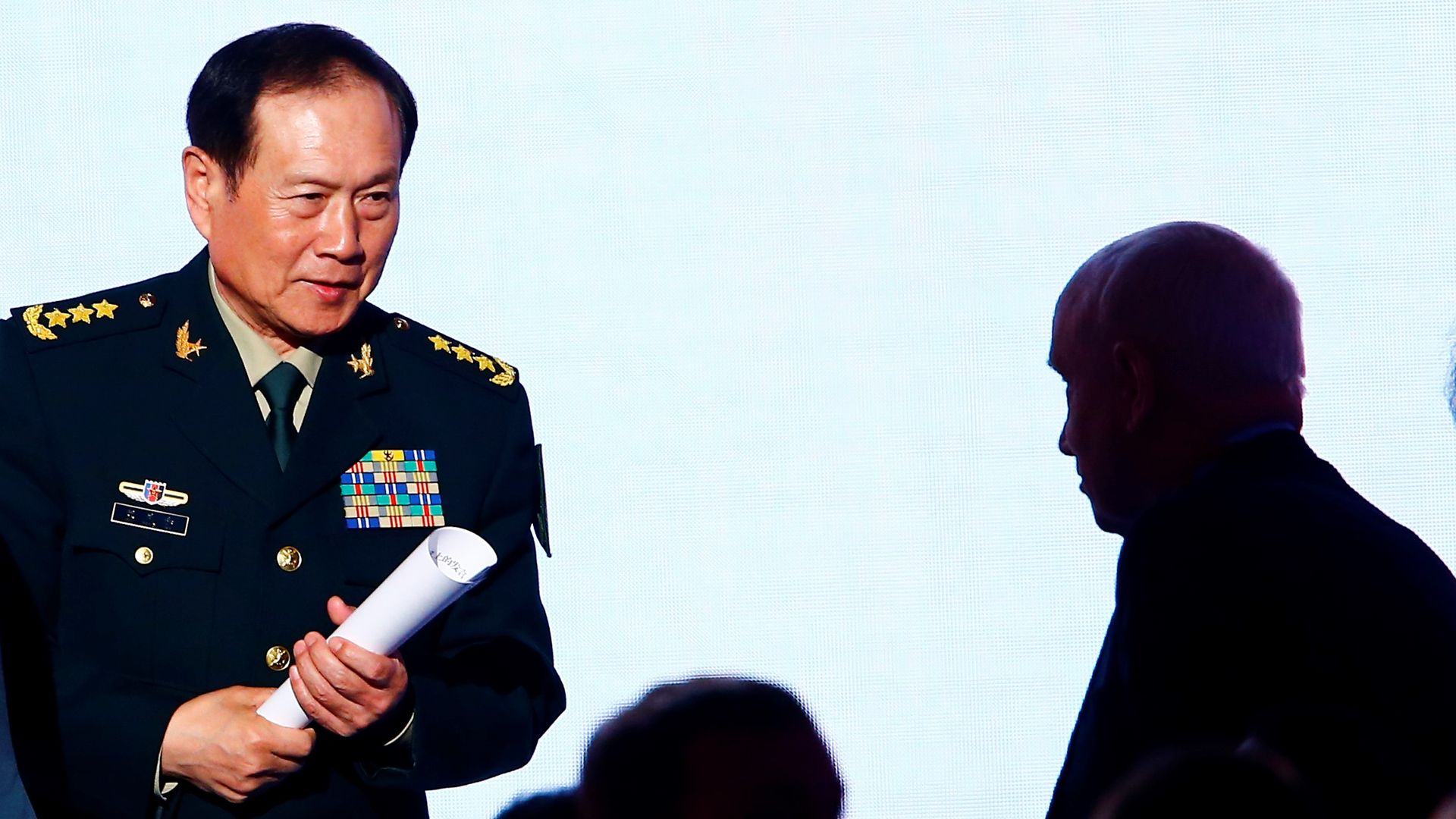Updated Apr 23, 2018 - World
Expert VoicesChina deepens militarization of One Belt, One Road initiative
Add Axios as your preferred source to
see more of our stories on Google.

China's Defense Minister Wei Fenghe. Photo: Sefa Karacan/Anadolu Agency via Getty Images
